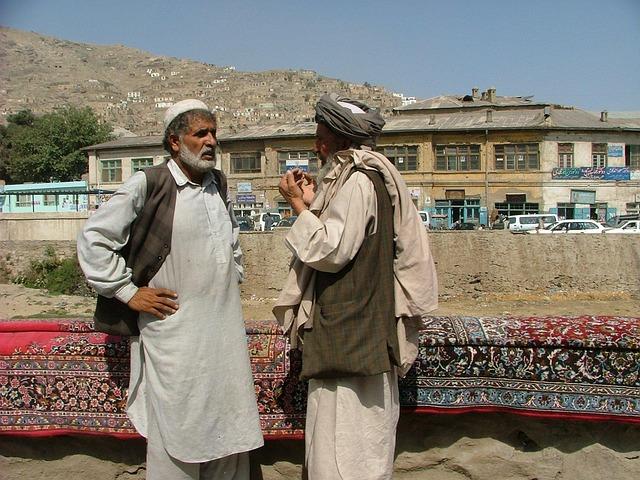In a significant escalation of tensions in South Asia, the Afghan government has issued a stern warning regarding retaliatory action following reported airstrikes conducted by Pakistan on Afghan soil. The allegations, which involve incursions into Kabul’s territory, have prompted Afghan officials to assert that a response would be delivered at the “proper time.” This latest development underscores the fragile state of relations between Afghanistan and Pakistan, raising concerns over regional stability as both nations grapple with their complex histories and ongoing security challenges. As the situation unfolds, diplomatic channels will likely be tested as both governments navigate the implications of military actions and their potential ramifications for peace in the region.
Kabul’s Strong Stance on Pakistan’s Alleged Airstrikes Highlights Regional Tensions
Kabul’s government has expressed strong condemnation over the alleged airstrikes conducted by Pakistan within Afghan territory, an act that has reignited escalating tensions between the neighboring countries. High-ranking officials in Kabul have stated that these incursions are not only a violation of Afghanistan’s sovereignty but also a direct threat to regional stability. The foreign ministry in Kabul has called for an immediate cessation of such military actions, emphasizing that Afghanistan will not tolerate any infringement on its independence. As part of their official statement, they underscored the importance of maintaining peace and security in the region, urging Pakistan to engage in diplomatic dialogue to resolve the ongoing disputes.
In response to the escalating situation, Kabul has warned that it is prepared to take action at a “proper time.” This stern warning indicates Afghanistan’s readiness to defend its territory and interests militarily if necessary. Analysts are closely watching the developments, noting that the potential for military confrontations could have serious implications for the broader regional dynamics. The following points encapsulate the key elements of the current standoff:
- Increased military readiness: Kabul is reportedly enhancing its military capabilities in anticipation of possible further escalations.
- Diplomatic channels: Afghanistan is urging international bodies to mediate and facilitate dialogue with Pakistan.
- Public response: There is growing public sentiment in Afghanistan against foreign military actions, prompting the government to act decisively.
The Implications of Airstrike Allegations on Afghanistan-Pakistan Relations
The recent allegations of airstrikes conducted by Pakistan on Afghan territory have escalated tensions between the two neighboring nations. Afghan officials have communicated their intentions to respond “at the proper time,” suggesting a potential shift in diplomatic relations that could lead to further conflict. As both countries share a long history of contentious interactions, these developments could have significant ramifications not just bilaterally but regionally as well. Key considerations include:
- Heightened Military Readiness: The threat of retaliation may prompt both countries to bolster their military preparedness, heightening the risk of unintended skirmishes.
- Impact on Refugee Flows: Continued instability may lead to increased displacement of civilians, as individuals flee areas of potential conflict.
- International Concerns: The international community may become more involved, urging restraint and promoting peace talks to prevent escalation.
Furthermore, the implications of these airstrike allegations extend to economic and diplomatic ties, which have been fragile in recent years. A volatile situation could complicate ongoing efforts for trade agreements and collaborative ventures that benefit both nations. In this context, it becomes crucial to analyze past diplomatic exchanges and their outcomes, as illustrated in the table below, which outlines key milestones in Afghanistan-Pakistan relations:
| Year | Event |
|---|---|
| 1947 | Independence of Pakistan; initial diplomatic relations established. |
| 1979 | Soviet invasion of Afghanistan leads to increased Pakistani support for mujahideen. |
| 2001 | Post 9/11, Pakistan becomes a key ally of the U.S. in Afghanistan. |
| 2021 | U.S. withdrawal from Afghanistan intensifies political maneuvering between both nations. |
Strategic Recommendations for Diplomatic Engagement and Conflict Resolution in South Asia
The recent tensions between Afghanistan and Pakistan, as highlighted by Kabul’s warning of a response to alleged airstrikes, underscore the urgent need for a carefully crafted approach to diplomacy in South Asia. In light of these developments, it is critical for stakeholders to foster dialogue that prioritizes mutual respect and understanding. Effective diplomatic engagement could include the establishment of regular communication channels aimed at de-escalating conflicts, while also encouraging third-party mediation when necessary. Furthermore, involving regional organizations with a vested interest in stability, such as the South Asian Association for Regional Cooperation (SAARC), could serve to unify efforts toward conflict resolution.
In addition, addressing deeper-rooted issues through comprehensive peace talks can be prioritized by focusing on the following strategic actions:
- Humanitarian Initiatives: Launch joint efforts to provide aid in conflict-affected areas, helping to build trust among affected communities.
- Security Collaborations: Establish bilateral agreements aimed at shared security interests, reducing hostile actions through cooperative frameworks.
- Cultural Exchange Programs: Promote initiatives that encourage interaction among citizens to foster understanding and mitigate biases.
The implementation of these recommendations could pave the way for a more stable and peaceful South Asia, ultimately benefiting all nations involved.
To Wrap It Up
In conclusion, the escalating tensions between Kabul and Islamabad underscore a fragile security landscape in the region. As Afghanistan’s leadership vows to respond to the alleged airstrikes carried out by Pakistan, the implications of this conflict extend beyond immediate borders, potentially destabilizing an already volatile area. Both nations face a pivotal moment as they navigate diplomatic channels and military posturing. The international community will be closely monitoring developments, hoping for a resolution that prioritizes peace and stability in South Asia. As the situation unfolds, the dynamics of regional security will be tested, and the response from Kabul could shape future relations with Pakistan and its allies.
